Animal cells
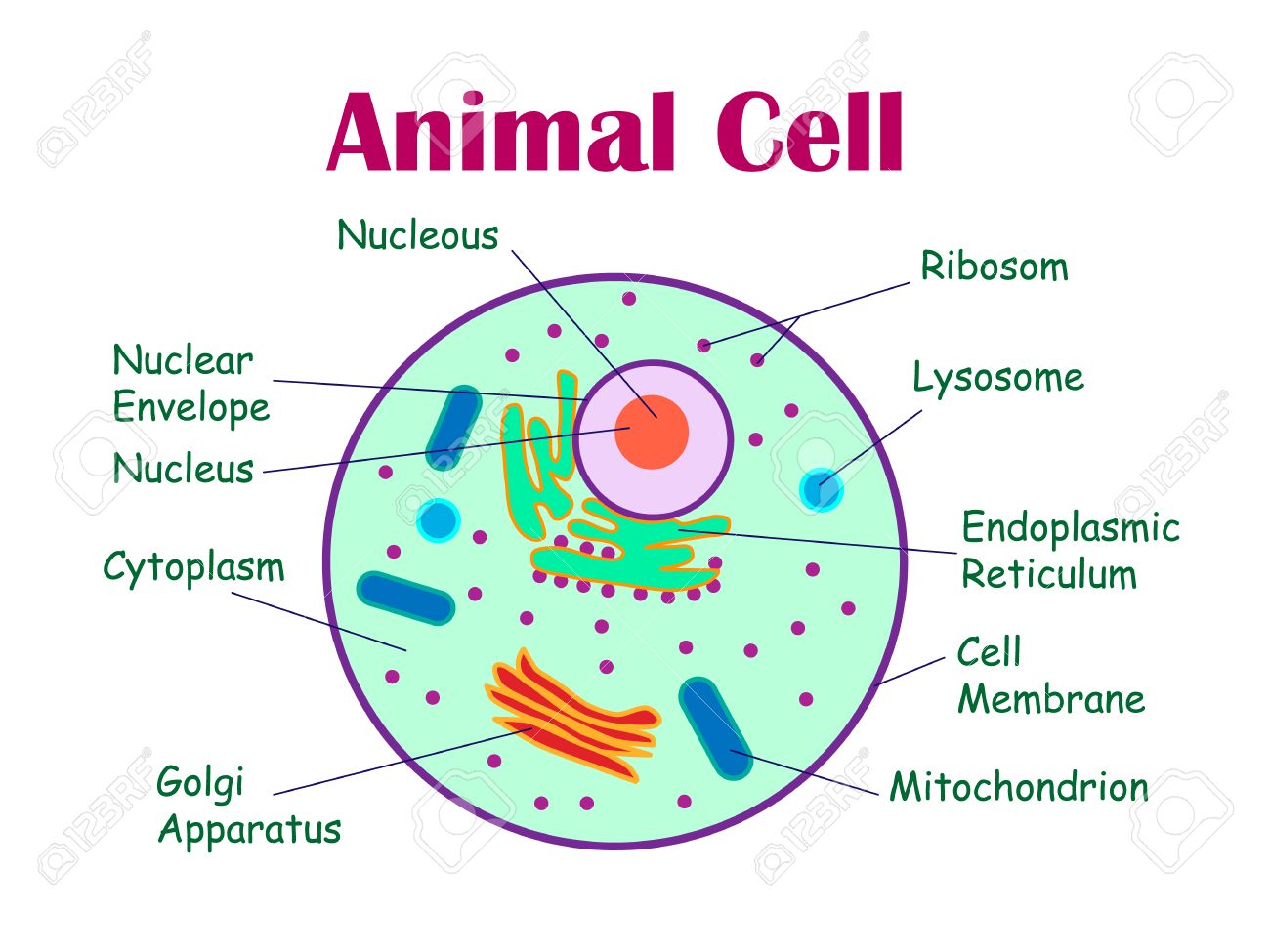
Let’s begin with the components of the animal cells:-
Cell membrane
A cell is always surrounded by a thin membrane called plasma membrane.
The membrane has the following functions:-
- It encloses the various cell structure and cytoplasm.
- It gives definite shape to the cell.
- It regulates the movement of substance into and from the cell. Only certain substances are allowed to enter or leave the cell so the membrane is selectively permeable membrane.
#Selectively permeable means something which is permeable allows material to pass in and out of it freely.
Nucleus
- The the most important organelle which controls all the vital activities of a cell is the nucleus.
- It may be spherical or oval.
- It is enclosed by a membrane called nuclear membrane filled with nucleoplasm.
- It contains thread like structures arranged in a network called the chromatin
- At the time of cell division chromatin threads get called become shorter and thicker forming chromosomes, each of which carries large number of genes.
# Genes controls and organisms hereditary character which are passed down from the parent cell to the new cell.
Mitochondria
- Mitochondria are the powerhouse of the cell they are essential for the completion of the respiratory process, which ends with the release of energy following the breakdown of food.
- Mitochondria is a simple rod shaped or spherical body with double membrane.
- The inner membrane has several folds which project inwards, forming finger like structures called cristae.
The cell may have a few hundred to a few lakh mitochondria.
Centrosome
- This small body lies in cytoplasm close to the nucleus.
- It contains two minute granules called centrioles, which help in cell division.
Plant cell
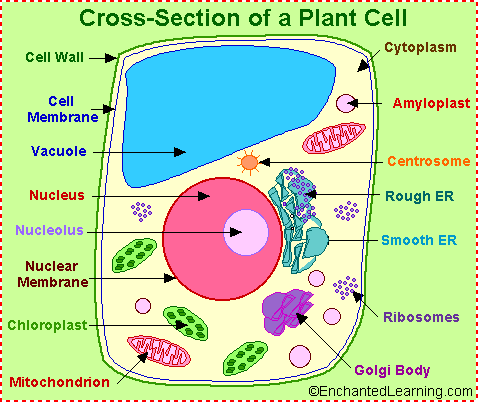
A plant cell is enclosed not only by the plasma membrane but also by a wall called the cell wall.
Also Check –Cell Structure and Its Function
Cell wall of Plant cell
It is made of nonliving substance called cellulose, a kind of carbohydrate.
Functions of cell wall in the plant cell
- It gives a definite shape to the plant cell.
- It makes the cell rigid and strong.
- Cell wall provides protection against variations in temperature, atmosphere moisture
- Prevents water loss.
- It protects the cell from injury.
- It allows all substance to enter and leave the cell.
Plant cells have all the structure mentioned in the animal cell except centrosome. In addition they have following organelles.
Plastids-
- Plastids are organelles containing pigment.
- They are covered by double membrane.
- Their shape varies from round to filamentous.
Plastids are of following types: –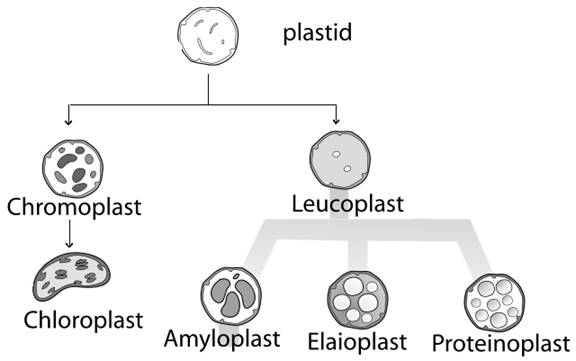
Chloroplasts-
These Plastids have a green pigment called chlorophyll. This gives plants their green colour.
Functions of chloroplast
- Chloroplasts plays Vital role in photosynthesis.
- Chloroplast helps the plant by trapping solar energy, which is then used to convert carbon dioxide and water to carbohydrates.
- Chloroplast are essential for survival of not only plants, but also all other organisms which depend on plants to fulfill their carbohydrate requirement.
Chromoplasts
- All The Other color which we see in plants are produced by Chromoplasts.
- For example, red, orange and yellow of ripe fruits and flowers are produced by this color Plastids.
Leucoplasts
- These are colorless plastids found in roots and underground stems, such as potatoes and Ginger.
- They store food like starch proteins and fats.
- Some leucoplasts turn into chloroplast when exposed to sunlight.
Vacuoles
- This bodies are like sacs or cavities.
- The contain the fluid called cell sap, which consists of water ,sugar ,amino acids, enzymes, salt, nitrogenous waste, and so on.
The functions of vacuoles are as follows
- It maintains the shape of the cell.
- It maintains the balance of water in the cell.
- It stores Chemicals, food, water and salts.
Nonliving substance
- A plant cell contains various non-living substances which are the products of its metabolic activities this substance as a whole are called cell inclusion.
- They Include various types of carbohydrates, proteins, fats, oils and some waste products like resin, gums and mineral crystals.
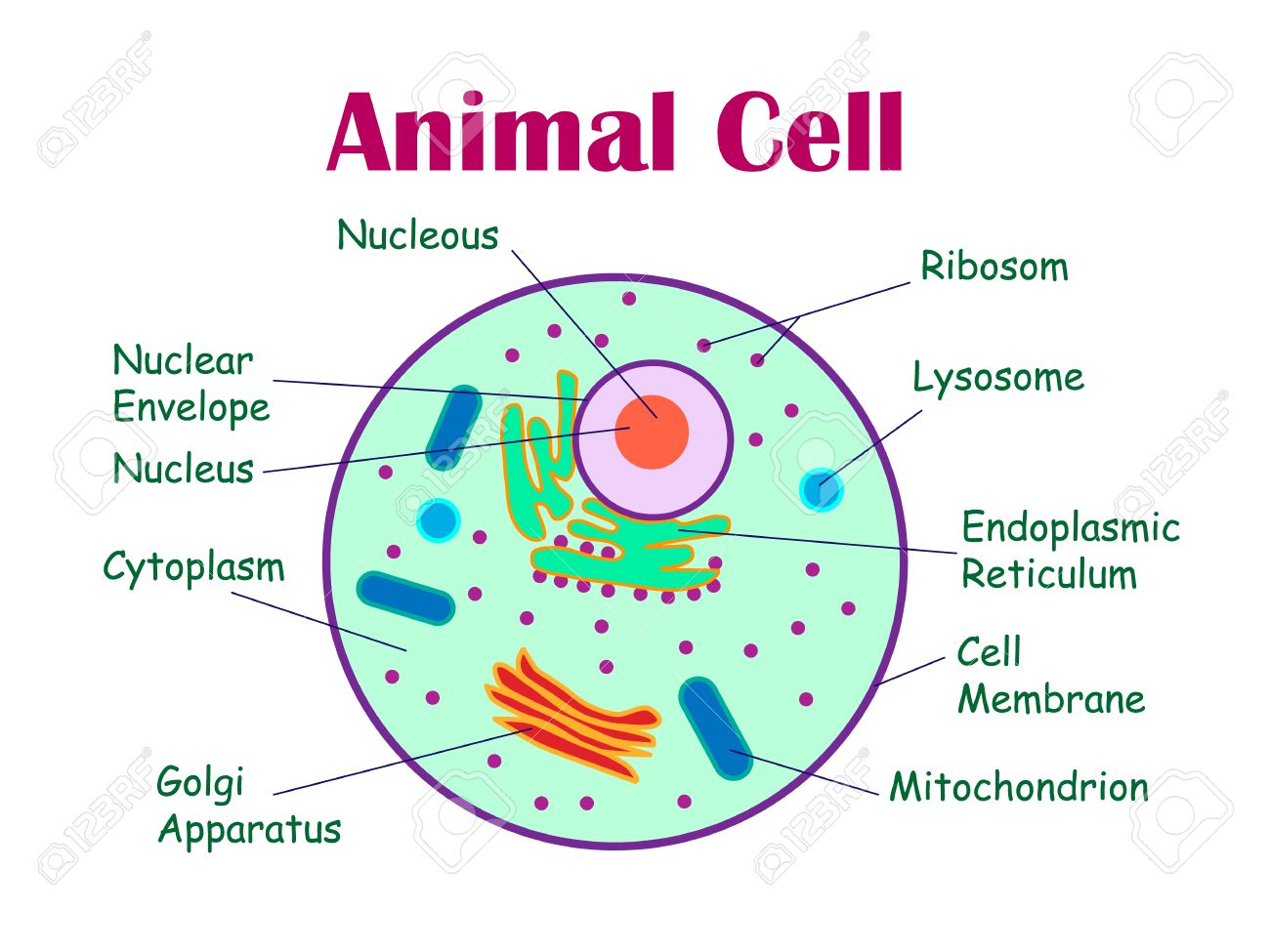
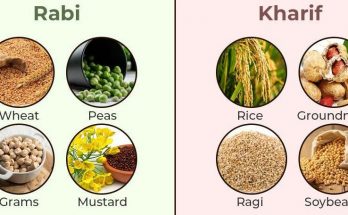
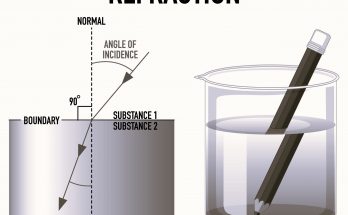
hi please I need this subject in my Gmail it is so very nice